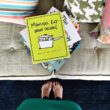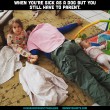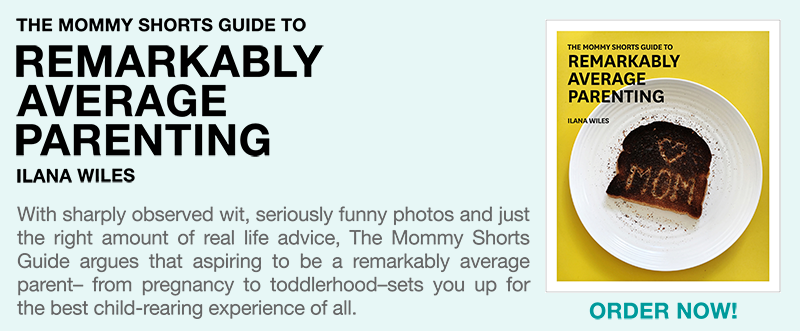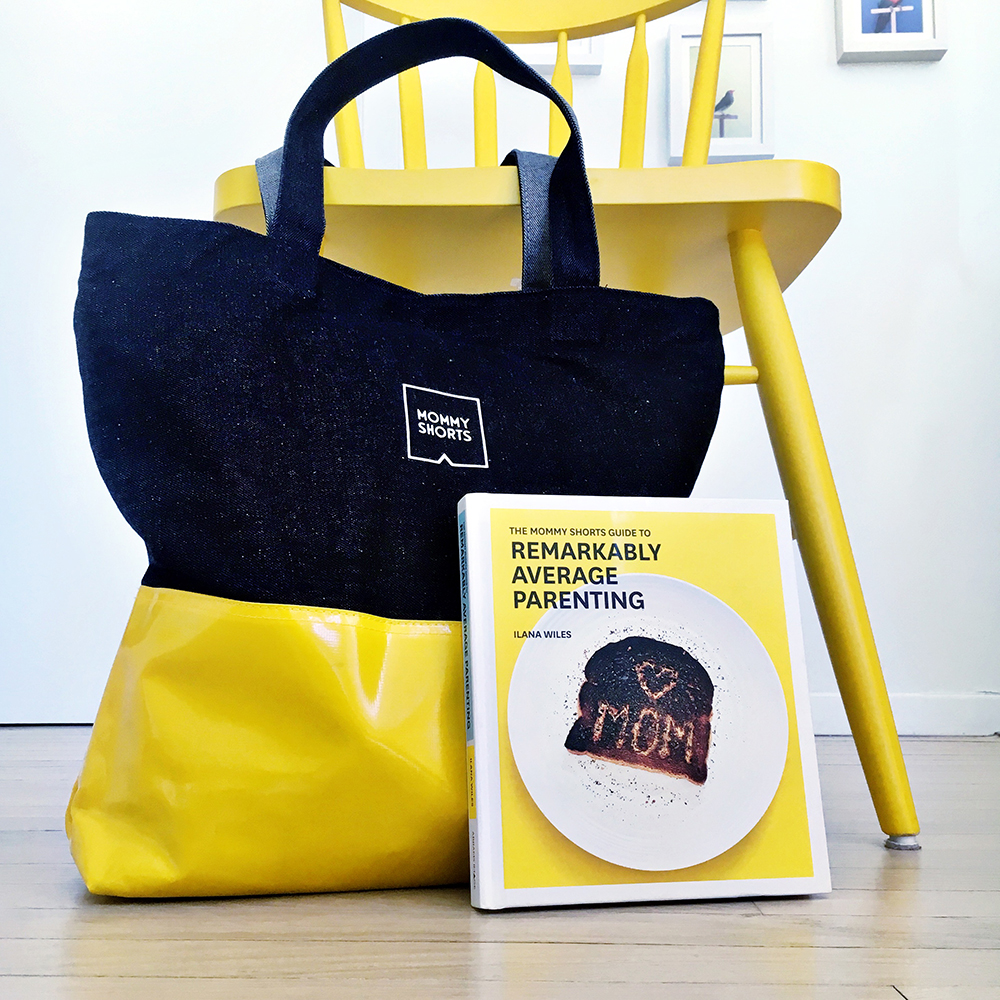Today I gave Dr. B the day off (as is stipulated in her imaginary Mommy Shorts benefits contract) but thankfully, the hilarious Lori from In Pursuit of Martha Points did me the honor of temporarily taking her place. You see, in addition to being hilarious, Lori is a certified speech-language pathologist who has recently started Your Child Talking, an online resource for parents who want to facilitate speech and language development for their kids.
Your Child Talking not only includes tips, games and instructions to help develop language for new talkers, it also provides personal video consultations to properly assess your child if you have specific concerns. A great idea since lack of communication skills, as Dr. B has taught us, is one of the biggest reasons that children resort to behaviors such as tantrums, screaming, hitting or biting.
In the spirit of Wednesday's usual Ask Dr. B feature, Lori is answering a question from the lovely Jessica at Four Plus an Angel about pacifiers in their relation to language development. And since my daughter, Mazzy is more than a fan of her binky/paci/soothie/nukky/whatever-you-want-to-call-it-as-long-as-it-is-in-her-mouth-ifier (see picture above), I am all ears…
Dear Lori,
My pediatrician said that I should not let my son use a pacifier in order to get him to talk more. What are your thoughts on this?
—Jessica
Dear Jessica,
The answer is….it depends. (Is that NOT your favorite?)
Research shows that use of a pacifier does not increase the incidence of speech or language delays, although prolonged use (past the age of three) does create risk of teeth malocclusion.
BUT! (You knew there was a “but,” right?)
If you have a child that is struggling with speech or language development, you really want to get rid of anything that might be a barrier. In this case, literally.
This does not mean cold turkey, however. Children use a pacifier to soothe, and you don’t want to radically increase the amount of stress in an environment at the same time you’re trying to help a late talker catch up.
If your child uses the pacifier only to fall asleep at nap or bedtime, there is no impact on speech and language development so don’t worry. Likewise if your child only uses the pacifier during brief periods of stress (a car ride or a trip to the doctor’s office.)
If your child uses the pacifier for more than half their waking hours and is behind in speech and language development, it’s a good idea to start tapering use of the pacifier down so that your child has good opportunities to engage in sound play and unencumbered periods to talk.
If your child uses the pacifier a lot then you’ll need a really good distraction when you begin to insist on pacifier-free times. Fortunately, YOU are one of the most desirable objects in your child’s world. You’ll find that using one-on-one focused play and face time is a pretty good trade-off for the pacifier. When you’re taking a pacifier break, make every minute count. Sit at eye-level, or carry, then talk, sing, make silly sounds and faces. Reinforce every sound and every word your child makes with delight and praise.
Prolong these periods until you have a child that needs the soothing assistance only briefly when awake and you’ll have removed one barrier that may be getting in the way of your child’s inclination to talk.
— Lori
If you have a question for Lori or Dr. B (our resident child development expert), please email me by clicking here. PBAXA6MDP5FY


























Great answer, of course, Lori. Thanks so much for taking the time to answer my question and thanks so much for posting it here Ilana. Now I need to get moving and get rid of the “binky”!
No problem— thank you for being part of Mommy Shorts today!
And btw, I am DREADING the day I decide to take the pacifier away. I’m not ready yet!
Great question and answer about the paci. My daughter is also enamored with her paci. I try to limit if for nap/bedtime/car and will soon be coming up with some paci fairy trick to help her be a big girl and move on.
I love your reasonable and sensible approach here especially if a child is having speech issues.
In my head, I wanted to get rid of the pacifier when my son had a name for it. I don’t know why that idea bugged me, especially since he really only used it at night and in the car. So as soon as he started calling it his “wa-wa,” we were done with it! It took him a couple of weeks to stop asking for it, but he slept find without it. I’m glad!
I’m so glad this post was actually about real pacifiers, because when I saw it was Lori I was afraid she would be taking away MY pacifier….my wine.
My son loved his paci, but he continued to talk and talk…to the point where sometimes we WANTED it to keep him quiet.
Finding the right time to ditch it is hard. When they are little you just want sleep and anything that will help you get it. I wanted to cry when we decided to ditch the binky.
My daughter was way older than she should have been when we finally ditched it. She only used it for bedtime but it was still a major PITA. She was between 2.5 and 3 years old and we were visited by the “binky fairy”. My daughter gathered all her binkys and put them in a fairy box on the porch before bedtime – the fairy came overnight and left her a “big girl” present in place of the binkys. That night was hard, really hard – but the next morning was awesome – she was psyched about the fairy present!
Nice – we never really used a pacifier when my daughter was a baby – she found one in the cupboard some time ago and now occaisionally uses it at bedtime. I bet that is weird. I chalk it up to breastfeeding until she was almost two.
I’ve heard a few stories of the Binky Fairy and I think they’re adorable.
And while the sleeping binky doesn’t complicate speech or language…it does make them dependent on them to soothe which means there’s often a rousing game of “Mommy Fetch!” in the middle if the night when it’s fallen behind the bed. 😉
I don’t know that I’ve heard of many kids adopting them late, but as long as it’s not causing you or her any grief I doubt there’s any problem with her using it for a while.
But that’s just a practical mom-opinion.
Oh my gosh…why would I take the wine away!!!!
Never. Evereververver.
And did he talk AROUND the pacifier? That drives me a bit bats I confess, but that’s a mom thing, not a speech therapist thing.
I have heard of lots of people sort of using that as a milestone for pacifiers – when they’re old enough to ask, they’re old enough to live without.
Thank you, kind lady! That means a lot to me!
Oops. Mazzy has had a name for the pacifier for quite some time. Which makes it even harder to deny her access. Looks like I dropped the ball on that one!
Mazzy is 14 months and already a big talker despite the pacifier. She uses it mainly at bedtime, in the car and for naps but she’s been more reliant on it since we transitioned her to a cup from the bottle a week ago. Sometimes she talks around it. But I usually take it away at that point and then give it back to her when she asks. Ugh. Am I doing this all wrong?
I love the binky fairy idea. Much more effective than my mother telling me at 5 years old that she threw my pacifier out by accident. The memory still scars me!
Neither kid ever took a paci. But for all my friends who did, there seemed to be a definite difference. Most gradually stopped using pacis except to soothe, but a few had kids who kept the pacis in like they were suckers and learned to talk AROUND the paci.
Oh no! I’m giving you a complex! Mazzy’s only 14 months! I’m thinking of three year olds talking in fluent sentences around a pacifier. But at that point it mostly feels like a manners thing to me – we wouldn’t, as moms, not discourage them from talking with their mouth full during meals either.
If she’s talking well, and age appropriately, and not using it every waking moment, I think you are fine!
And it doesn’t surprise me that she needs a bit more at the moment when she’s giving up the bottle for a cup, but I bet she’ll transition out of it over a few weeks.
Nice, for this sharing, thank you i like mom.